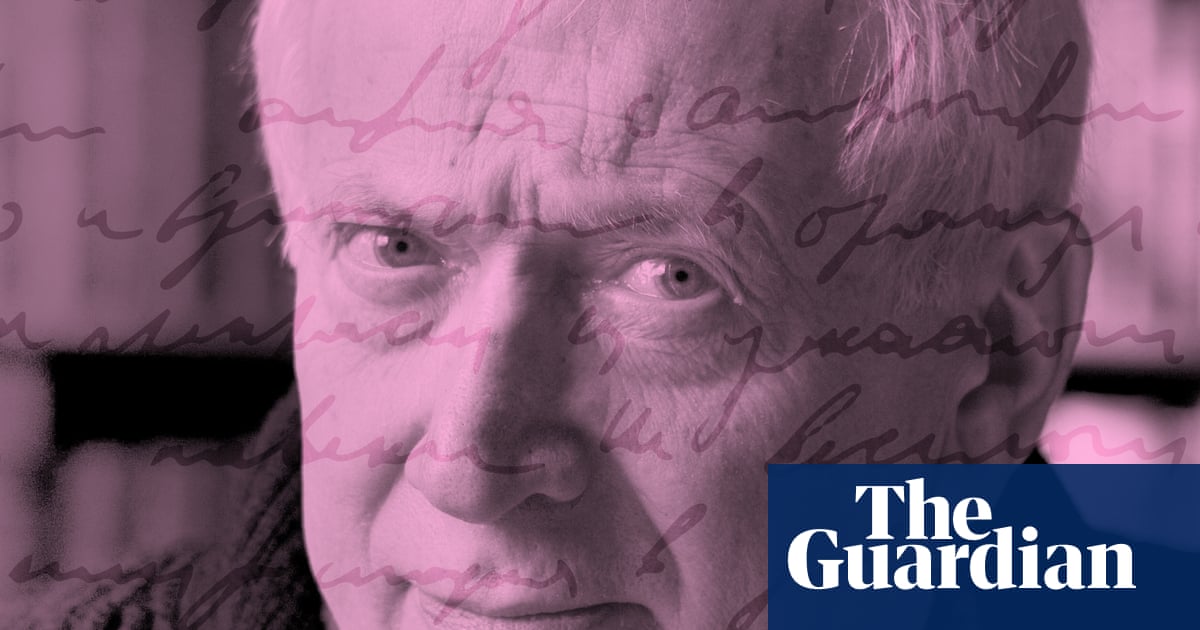Paul Bailey, who died last October aged 87, was best known as a novelist of comic brilliance, wide-ranging empathy – even for the worst of his characters – and a cleverness that was never clinical. His fiction was frequently occupied with the impact of memories on our lives, and usually heavily driven by sharp, syncopated dialogue. But he was also a memoirist, poet and more besides – so here’s a guide to the legacy of books he left behind.
The ones to keep you company
Bailey was a social creature, a great talker and lover of “trivial chit-chat”, as one of his characters puts it. Bailey and his friend Beryl Bainbridge used to watch Coronation Street and then compare notes over the phone. This fondness for a gossipy conversation is brought out in his novels Trespasses (1970) and Peter Smart’s Confessions (1977). Both feature a man surrounded by funny, maddening, over-the-top characters, who are usually so closely related to him that he can’t escape the gravitational pull of their nonsense. “Who wants to be normal anyway?” asks Ralph’s mother in Trespasses when he comes out to her as gay. Like spending an evening with your wittiest, and sometimes cheekiest, friend.
The ones to make you laugh and cry at the same time
Bailey wrote brilliantly about old age, at both ends of his career. His debut novel At the Jerusalem (1967) follows the experiences of Faith Gadny as she tries to settle into life in an old people’s home, where the other residents provide the warmth lacking from the staff, whose idea of taking an interest in the residents is to ask, “Why aren’t you ladies watching the television?” In Bailey’s penultimate novel Chapman’s Odyssey (2011), an elderly man in hospital slips between tussling with the doctors (“I only drink superior wines”, he assures them when they rebuke him for his liver test results) and being bombarded by memories of his mother, his lovers and classic literary characters, from Dickens’s Pip to Austen’s Emma. Both books are full of funny exchanges but marked by the shadow of the inevitable end. Always in Bailey’s novels, smiles are not to be trusted. In At the Jerusalem, “the matron smiled, shut the smile off quickly”; Mrs Gadny laughs with nerves when her behaviour is challenged. In Chapman’s Odyssey, Harry warns the medics that “my smiles aren’t what they seem”. The reader’s smiles are real enough, though.
If you want to know the facts behind the fiction
As well as his novels, Bailey was a brilliant memoirist, publishing two volumes of autobiography. An Immaculate Mistake (1990) is a masterpiece of remembrance, its title taken from his mother telling him, her third child, that “You were our mistake. You ought not to be here, by rights.” (“She was old now, and letting go of her secrets,” he adds. “This one, she knew, would be of particular interest to me.”) It’s in this book that we see where all those misguided, loving but infuriating parents in his novels come from. But it’s also a beautiful portrait of a young man growing up gay in the 1940s and 50s, when homosexual acts were illegal and his family thought it suspicious for a boy to buy his mother flowers; and of an aspiring actor (Bailey was on the stage before he turned to the page) who memorised Hamlet at the age of 15. His second memoir A Dog’s Life (2004) focuses on life with his mongrel puppy Circe and his former partner David, his love for Romania – which inspired his later novels Kitty and Virgil, Uncle Rudolf and The Prince’s Boy – and of course dollops of gossip, including a splendid account of a literary event with Iris Murdoch, where she calls one audience member a “stupid cow”.
If you’re pressed for time
Bailey’s novels are mostly short anyway – the tremendous Old Soldiers (1980) is barely 100 pages long – but if you want something even briefer, then try the poetry he turned to late in his career. The two volumes, Inheritance (2019) and Joie de Vivre (2022), show the best of Bailey’s wit, empathy and precision in capsule form. They are poems full of death and life. Two themes of love recur: for his mother (“I’m closer to you now – / I need to tell you – / than I ever was in life”) and for his civil partner Jeremy Trevathan. In Amazement, he writes of the pleasures of “watching an idiotic TV entertainment” together, and concludes: “It’s awesome, in its way, this act of eating cheese / and drinking wine, as the world keeps darkening.”
If you only read one
There would be little dispute that Bailey’s most ambitious and wide-ranging novel is Gabriel’s Lament, which was shortlisted for the Booker prize in 1986. (He also judged the prize in 1982, an experience he hated.) This was the book Bailey was proudest of, even though – or perhaps because – “it drained me. It took everything out of me”. It tells the story of Gabriel Harvey, whose mother disappears and whose father becomes an insufferable snob after coming into a pile of money – and the two events may be connected. It’s a portrait of 20th-century London, an account of mental collapse, and as simultaneously funny and sad as anything Bailey wrote. If you want more, it inspired a sequel, Sugar Cane (1993), which Bailey researched by becoming “a regular visitor to a brothel” – as a spectator.
